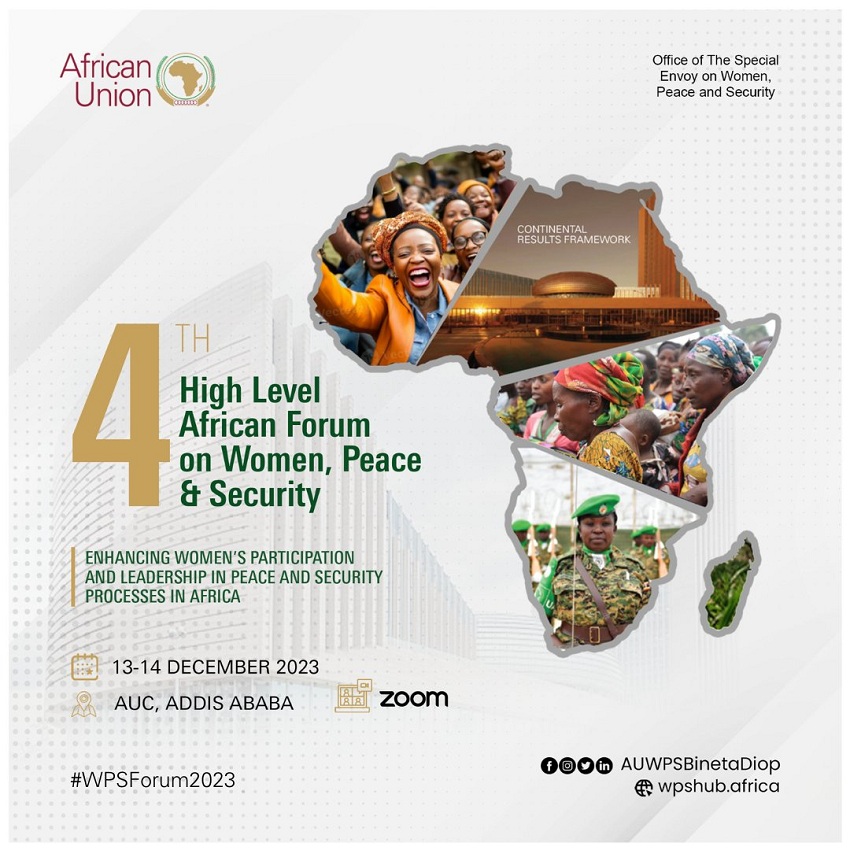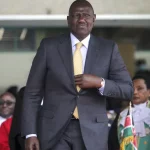Research continuous to show that countries with greater gender equality are more likely to resolve conflicts without violence and are less likely to usResearch continuous to show that countries with greater gender equality are more likely to resolve conflicts without violence and are less likely to use military force to resolve international disputes.
Conversely, countries with more significant gender gaps are more likely to be involved in inter- and intrastate conflict.
It is known that the presence of women in positions of leadership can greatly reduce the likelihood of violent conflict emerging as well as the prospects for the peaceful resolution of existing conflicts.
It’s evident that women’s participation in conflict prevention and resolution can improve outcomes before, during, and after conflict. Yet despite this evidence, women’s participation in formal peace processes remains low.
According to data by UN, in 2022, women participated as conflict party negotiators or delegates in four of five active United Nations–led or –co-led peace processes. Women’s representation stood only at 16 per cent, a further drop compared to 19 per cent in 2021 and 23 per cent in 2020.
In a view of this, the office of the African Union Envoy on Women Peace and Security Mme Bineta Diop has convened the 4th High Level African Forum on Women, Peace and Security which kicks off 13-14 December 2023 in Addis Ababa, Ethiopia.
Under the theme of “Enhancing women’s participation and leadership in peace and security processes in Africa,” the 2-day forum will bring together African women leaders, women peacebuilders, and national and regional focal points on Women, Peace, and Security and other stakeholders to advocate for a significant transformation in the current strategies and efforts employed to promote women’s involvement and leadership in Africa, as well as co-create new approaches for advancing women’s inclusion and participation in peace processes
The forum will also offer an opportunity to assess the progress made by member states and regional organizations in delivering existing commitments on Women, Peace and Security (WPS) using the Continental Results Framework (CRF).
The deliberations will reflect on the current strategies of enhancing women participation in peace processes with a view to understand the gaps and make recommendations.; reflect on how to strengthen and support women’s peace building networks, especially in countries undergoing political crisis and reflect further on the role of young women and girls in peace and security.
The forum will put forth strategies for advancing women’s inclusion and participation in peace processes identified; suggest how to strengthen networks and learning among the regional women peace and security forums and proposals for gender quota to enhance gender parity and women’s participation in peace negotiations made.
The Outcome will cover the various pathways and strategies that the African Union, the Peace, and Security Council (PSC), and AU Member States can adopt and execute to intensify their resolve in effectively implementing and advancing the WPS Agenda in Africa.e military force to resolve international disputes. Conversely, countries with more significant gender gaps are more likely to be involved in inter- and intrastate conflict.
It is known that the presence of women in positions of leadership can greatly reduce the likelihood of violent conflict emerging as well as the prospects for the peaceful resolution of existing conflicts.
It’s evident that women’s participation in conflict prevention and resolution can improve outcomes before, during, and after conflict. Yet despite this evidence, women’s participation in formal peace processes remains low.
According to data by UN, in 2022, women participated as conflict party negotiators or delegates in four of five active United Nations–led or –co-led peace processes. Women’s representation stood only at 16 per cent, a further drop compared to 19 per cent in 2021 and 23 per cent in 2020.
In a view of this, the office of the African Union Envoy on Women Peace and Security Mme Bineta Diop has convened the 4th High Level African Forum on Women, Peace and Security which kicks off 13-14 December 2023 in Addis Ababa, Ethiopia.
Under the theme of “Enhancing women’s participation and leadership in peace and security processes in Africa,” the 2-day forum will bring together African women leaders, women peacebuilders, and national and regional focal points on Women, Peace, and Security and other stakeholders to advocate for a significant transformation in the current strategies and efforts employed to promote women’s involvement and leadership in Africa, as well as co-create new approaches for advancing women’s inclusion and participation in peace processes
The forum will also offer an opportunity to assess the progress made by member states and regional organizations in delivering existing commitments on Women, Peace and Security (WPS) using the Continental Results Framework (CRF).
The deliberations will reflect on the current strategies of enhancing women participation in peace processes with a view to understand the gaps and make recommendations.; reflect on how to strengthen and support women’s peace building networks, especially in countries undergoing political crisis and reflect further on the role of young women and girls in peace and security.
The forum will put forth strategies for advancing women’s inclusion and participation in peace processes identified; suggest how to strengthen networks and learning among the regional women peace and security forums and proposals for gender quota to enhance gender parity and women’s participation in peace negotiations made.
The Outcome will cover the various pathways and strategies that the African Union, the Peace, and Security Council (PSC), and AU Member States can adopt and execute to intensify their resolve in effectively implementing and advancing the WPS Agenda in Africa.



